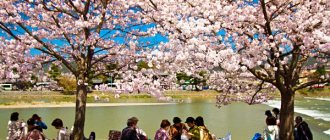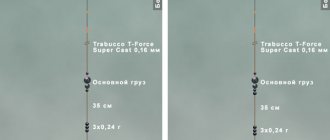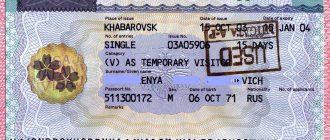Japan is the country where the sun rises, this is how its name is translated from Japanese. And that is why the rising Sun glows red on the white national flag of the country.
From the point of view of the average domestic (and foreign) tourist, Japan, once closed to Europeans, is a real pearl of Far Eastern tourism. Even the most demanding and fastidious of those who have “already traveled half the world” have something to see here: the pronounced national flavor of ancient Shinto shrines and the most modern skyscrapers of Japanese cities, built according to the latest Western standards and technologies, the unique nature of countless nature reserves and parks and the gardens of this amazing country, the original bunraku puppet theater - all this, and much, much more, will not leave anyone indifferent... How and who can be left indifferent by the ancient samurai history of the country, beautiful geishas or cherry blossoms?
It is clear that in order to visit Japan and see firsthand how magnificent and unique this country is, you will need a tourist visa.
Do Russians need a visa to Japan?
Yes, Russians need a visa to visit the Land of the Rising Sun. But there is some good news: in obvious contrast to most foreign visas, a tourist visa to Japan for Russian citizens and its residents does not cost anything. Nothing. Absolutely. Not a penny. And getting it, friends, is no more difficult than “some kind of Schengen”.
True, there are also some nuances here: the Japanese Embassy is located in Moscow, and there are also four Japanese Consulates General in Russia - in St. Petersburg, Yuzhno-Sakhalinsk, Vladivostok and Khabarovsk. That is, it turns out that residents of other Russian cities will have to come to one of these cities in order to obtain a free Japanese visa. Which, to put it mildly, is not very convenient...
However, here, as elsewhere, you cannot do without cunning intermediaries, and a Japanese visa can be obtained locally through accredited travel agencies. And this is by no means free of charge, and it takes much longer.
Visa-free regime with Japan
Negotiations are underway between the Japanese and Russian governments regarding the abolition of short-term entry visas for Russians. According to the latest forecasts, Russians will be able to visit Japan without a visa for up to three months, subject to prior registration. It is also planned to open the possibility of multiple visa-free entry for Russians for a certain specified period.
The possibility of canceling the visa was received positively in the Kremlin, because the government advocates liberalizing the visa regime with Japan. This is also an important part of Russian foreign policy, which will help improve relations between countries. This will enhance cultural, tourism, economic and scientific exchange. It is expected that in the coming years, about 400,000 people will benefit from the visa-free regime. Among the main categories of citizens targeted by the liberalization of the regime are businessmen, athletes, tourists and participants in cultural events, including media personalities. At the moment there are no reasons preventing this.
Even minimal easing of the visa regime makes it possible to increase the flow of Russian tourists to Japan. Already at the beginning of 2021, this trend was noticeable. This is primarily due to the openness of Japan and the easing of the visa regime. In 2021, the visa procedure was simplified, but only unilaterally. This helped travel agencies establish and simplify the tourism business to Japan for groups of three people or more. The presence of direct flights also affects the increase in the number of people wishing to travel.
About 95,000 Russians visited Japan in 2021, which is 20% more than in 2021. In total, more than 31 million foreign tourists visited Japan last year.
Against the backdrop of some cooling in relations between countries, this seems illogical, but there are good reasons for this. Firstly, the exchange of tourists will help to improve tense relations due to negotiations over the Kuril Islands. Secondly, this is another step towards economic and political cooperation, and it will also expand ties and facilitate mutual travel for citizens of Russia and Japan. All this should have a positive impact on the general atmosphere between the countries and encourage Russia to make concessions on the territorial issue.
A visa-free regime for tourists is an excellent opportunity to travel freely between countries. Japanese carriers have also become more active. For example, the airline announced its intentions to launch flights to Moscow and Vladivostok, although previously only one airline operated flights to Moscow, and from Vladivostok there were only flights from Russian airlines.
How to get a visa to Japan on your own: requirements
To obtain a tourist visa to Japan, as well as to any other country (of course, with the exception of countries that have visa-free relations with the Russian Federation), you will need a certain set of documents.
And finally, one more, no, two good news for potential guests of the country of the three “Cs” - samurai, sakura and sake: firstly , to obtain a Japanese visa you no longer need an invitation from the host party, which was a prerequisite for obtaining a Japanese tourist visa visas until January 1, 2017, and secondly , a health insurance policy is also no longer required to enter Japan. However, we strongly recommend that you get one, if only because treatment and medicine in general in Japan are extremely expensive. In any case, it will not be superfluous.
By the way, you can apply for a medical policy for a trip to Japan without leaving your home, online. The system will automatically collect offers from several insurance companies, and you can choose the most optimal one.
Types of visas
- transit visa: valid for 72 hours, needed by those who are planning a transfer in the Land of the Rising Sun when traveling to another country. It is not issued at the airport; it must be issued through the embassy or consulate in advance. With such a visa you can go into the city and even travel around the country, but only for the purpose of sightseeing. You must leave Japan before your visa expires;
- tourist: issued to tourists, as well as those who travel on business or travel to exchange cultural experiences or go to visit friends and relatives, including husband/wife, who live in Japan. A short-term visa is issued for 90 days, the exact validity period is indicated on the visa sticker and is usually equal to the validity period of the tour package. A multiple visa is issued to businessmen, politicians, and cultural figures for a period of up to 3 years, but only on the condition that the person has already been to Japan before and has not violated the country’s laws. It is also important that during the trip a person does not engage in activities in Japan that generate income or involve remuneration;
- medical: this type of visa is needed if the period of stay in Japan may exceed 90 days, and the purpose of the trip is treatment;
- long-term: necessary for those who plan to study or work in Japan, as well as engage in any other activity for which remuneration is due, or want to stay in the country for more than 90 days not for treatment.
How long does it take to get a visa to Japan?
So, the Japanese are very careful in selecting candidates to visit the country. The visa itself will be valid for 90 days from the date of receipt, but the number of days of stay allowed will depend on your travel program. As a rule, a visa is issued for a single entry for 15 or 30 days of stay.
To obtain a multiple-entry Japanese visa with a longer period of stay, you must justify such a need, in addition, the bank account statement must contain the required amount
Processing times and costs
The time it takes to obtain an entry permit to Japan directly depends on the type requested. The fastest way to obtain a tourist or visitor visa is to process it in just four or five working days. To obtain a work visa, you should wait about two weeks; a family reunification visa can take up to a month.
Any visa to visit Japan is issued absolutely free. This is a pleasant surprise for applicants. When applying to a visa center, you will need to pay about $30 for administrative services provided by its staff.
The Japanese visa is pasted into the passport
Documentation
So, to obtain a tourist visa to Japan, citizens and residents of the Russian Federation will need to provide the following portfolio of documents to the embassy or consulate general - their, so to speak, basic set:
- visa application form - signed by the applicant in two copies, filled out in English or Japanese, indicating all the required dates and the obligatory attachment of photographs of 45x45 mm format (they must be pasted in independently);
- a foreign passport or a copy thereof - the latter in case the applicant needs the original while his application is being considered;
- a copy of the general civil (internal) passport - pages with personal data and indicating the place of permanent residence (registration);
- a certificate from the employer indicating the current salary, a bank statement (as evidence of the financial solvency of the applicant). The minimum amount recommended by the consulate is $100 per person per day;
- air tickets or any document confirming their booking;
- a detailed program of stay in Japan (also in one of two languages - English or Japanese) - deadline dates are indicated (day of arrival - day of departure), proposed routes of movement around the country, numbers of “incoming” and “outgoing” flights and other “appearance passwords” » such as addresses and phone numbers of hotels in Japan where the applicant plans to stay.
Let us repeat, this list is “basic” and may vary from case to case, and therefore it must be clarified each time on the above-mentioned official Internet portal of the Japanese Embassy, since if for some reason this briefcase does not contain the necessary documents (for example, powers of attorney from minors persons, marriage certificates for married couples, etc.), the visa application will not be accepted for consideration.
By the way, the list of documents may also vary depending on the place of their submission. For example, at the Japanese Consulate General in the Far East, the applicant will not be required to print out a hotel reservation.
Application form: sample filling and form
The visa application form for a visa to Japan is filled out strictly in English or Japanese, printed on two sheets in two copies (one copy - two pages). A photo of the applicant is pasted into the application form in the space provided. And don’t forget to sign on the 2nd sheet. Application forms can be found at the link. You can see a sample of the completed application form below:
Photo: requirements 2021
Photos to obtain a visa must be in color or black and white. The size of the photograph for a visa to Japan is 4.5x4.5 cm. They must be taken no later than 6 months before applying to the consulate. It is not acceptable to submit two different photographs. The photo must be attached to the application form.
Japan Visa Program
So, the list of required documents for a Japanese visa includes a stay program. This document, in fact, is not anything complicated. There is a sample on the consulate website with an example of what needs to be entered. You need to fill out in English or Japanese; in the sample, the information is indicated in Russian purely for understanding.
As a result, you should end up with something like this:
Terms of consideration
The minimum decision period is 4 days. If the answer is positive, the visa is usually issued within 5-10 days. However, there may be cases when a particular case may take 2 weeks or more to process. As of 2019, there is no urgent processing that will take less than 4 days. The decision period may be extended:
- If you have any questions or comments for the applicant.
- If necessary, provide additional documents.
- When scheduling an interview for the applicant.
- Increased processing times may be due to holidays in Russia and Japan. First of all, such holidays include the New Year and the May holidays.
Where to contact
A Japanese tourist visa can be obtained from the Japanese Embassy in Moscow or from any of the four aforementioned Consulates General of Japan in St. Petersburg, Yuzhno-Sakhalinsk, Vladivostok or Khabarovsk. The official websites of the representative offices indicate the territories and zones covered by the consular responsibility of a particular Japanese Consulate General in Russia.
Where to apply for a visa
You can apply for a visa to the Japanese representative office in Russia. Let us remind you that today Japanese representative offices are located in the following cities of the Russian Federation: Moscow, St. Petersburg, Vladivostok, Khabarovsk.
You can submit documents in person or through authorized representatives. Documents sent by mail will not be accepted for consideration!
Embassy of Japan in Moscow
How much does a visa to Japan cost for Russians?
As mentioned above, for citizens of the Russian Federation a Japanese visa is free, and in terms of indirect financial costs the situation with obtaining it is as follows: 150 rubles for two photographs on the application form and a certificate from the bank (if it is not issued free of charge) - more 200 rubles. This is if we are talking about independently applying for a visa at the Japanese Embassy or Japanese Consulates General. Intermediary services (that is, the services of travel agencies and postal services) are not taken into account in this case; their cost should be clarified with the specific service.
Reasons for refusal to issue
When assessing the package of documents provided, embassy staff are guided by the following criteria:
- Validity, validity period, completeness of the provided papers.
- Availability of the right to re-entry and a positive history of past visits.
- The period of stay and possible status as a traveler is not inconsistent with the Immigration Act.
- A tourist or guest does not fit the norms of Art. 5 of the Immigration Act governing refusal of entry.
In other words, the reasons for refusal are signs of unreliability of the applicant or absent-mindedness of the applicant who did not provide all the documents. They may also refuse to issue a pass if the consulate representative considers the traveler to be low-income or learns of a criminal record in his home country or violations of Japanese law.
In case of refusal, the applicant will be given only his personal passport.
Visa violations and sanctions
When going to Japan, you should remember that violation of the local visa regime (for example, working on a tourist visa) leads to administrative arrest for an indefinite period, a fine and subsequent forced deportation from the country and restrictions on visiting it in the future for a period of several years. The administrative arrest of a violator of the Japanese visa regime is the subject of consular proceedings, and the consul of the Russian Federation in Japan will have to represent the interests of the arrested person in the future, taking measures for his legal protection.
Types of visas by purpose and conditions of stay
All visas can be divided into the following types:
- Short-term visa without work permit. The maximum period of stay in the country is 90 days. What could be the goals:
- Tourism is a trip guaranteed by a travel agency. The trip will be legal and conducted legally, and will also be registered in the register of tour operators.
- Visitor visa – visiting local residents:
- Friends.
- Familiar.
- Invitation from a private person.
- Relatives.
- Family – visiting relatives who are relatives up to the 3rd generation.
- Business – a one-time visit to the country for business purposes . It can be:
- Entrepreneurship and business affairs (negotiations, business meetings, meetings, business trips, contracting, marketing, advertising).
- Taking part in certain activities.
- Short-term internship.
- Exchange (cultural, sports, etc.).
- Business – short-term, multiple visits . This may include:
- Business (has the same characteristics as in a one-time visit, but here there is the opportunity to cross borders with wife/husband and children).
- Exchange (similar to a one-time visit, but with permission to enter with close relatives).
- Short-term visas for the spouse of a Japanese citizen who resides in Russia for a long time. Can be single or multiple.
- Medical visa (issued for the purpose of staying in Japan for medical treatment) . Covers a wide range of medical services - from preventive treatment in medical institutions to therapy at hot springs. The visa can be single or multiple with a period of 3 years with a one-time stay in Japan for 3 days.
- Long-term visa (for the purpose of long-term residence or work activities). Finding purposes:
- Living in Japan for more than 3 months.
- Carrying out work that involves remuneration (the length of tenure does not play a significant role).
- Apparatus employed.
- Transit visa (for the purpose of transfer in Japan on the way to a third country). This visa is permitted if the maximum period of stay in the country does not exceed 3 days. If your plans include sightseeing during your transfer, you will need a completely different visa. If you are on a sea cruise, it is prohibited to go ashore with a transit visa.
Applying for a visa through the Online Visa Center
To apply for a visa using the Online Visa Center, you need to collect all the required documents and then contact the employees of this service. How to get a visa using this center:
- You can submit documents online. You should select the required type of visa, fill out all the necessary documents and forms. Next, you download everything you need to obtain a visa and pay the fees electronically. The completed visa will be sent to the specified email with further instructions.
- Submission of documents by E-mail. To do this, the applicant will need to send all the required documents and certificates to the service’s email. Service employees will send you an agreement and an account number for payment. Then you must sign the contract sent and send it back by email. Payment can be made at any bank branch.
- You can submit documents at the office. The applicant brings all the necessary documents to the office of this company (or on electronic media). The office will tell you in detail about the next steps in obtaining a visa.
Special visa policy[edit | edit code]
Japan has a strict visa policy for CIS countries and Georgia (except Russia [2]).[3] Citizens of these states cannot act as financial guarantors for themselves and obtain a Japanese visa on their own, directly through the consulate. They must obtain a visa through travel companies, which will have to act as a guarantor, or with the support of a Japanese tax resident (not necessarily a Japanese citizen).
There are also differences in obtaining visas for citizens of China and the Philippines due to migration risk.[4][5]











